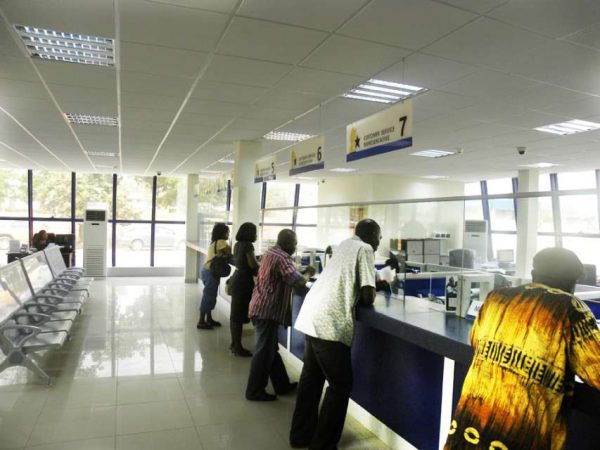Consolidation in the banking sector, they maintain will lead to fewer, but larger banks, which are more stable, robust and can withstand shocks in the economy.
“Financial institutions are spread out too thinly in Ghana; if we want to be leaders in the West African financial space we need a strong financial sector; our financial institutions should have the muscles to handle big projects,” labour consultant, Senyo Adjabeng maintained.
According to him, the projects outlined by the Akufo-Addo led government towards economic transformation are ambitious and huge ones so “if government is to partner the private sector in realizing its objectives then banks will ultimately lead the effort.”
Some analysts have been of the view that Ghana’s banking sector has failed to drive economic growth as the financial services sector has not been deepened enough.
Recapitalisation
The debate over the weaknesses of Ghana’s banking sector has gained currency in the wake of GCB bank’s takeover of UT Bank and Capital Bank.
Even the Chartered Institute of Bankers (CIB) is in agreement with a strong banking sector, the Institute has urged the BoG to avoid a blanket implementation of its policy to get banks in the country to recapitalise.
It maintains that the segmentation of banks will allow lower tiered banks that have met the initial threshold to serve particular sectors of the economy with innovative products and services whilst banks with increased capital base (higher tiered banks) finance bigger projects.
President of the Institute, Rev. Mrs Patricia Sappor said such an approach will help the country to have a banking sector that supports small, medium sized and large banks that are all playing various roles in the economy.
“The regulator should consider a tiered recapitalization policy, with tiered capital targets to enable lower tiered banks meet the recapitalisation requirements,” she noted.
Chief Executive Officer of The Royal Bank, Mr Osei Asafo-Adjei agreed that a well-capitalised and consolidated banking sector provides a strong backbone to the economy.
He however suggested that the regulator allows banks to recapitalize based on the nature of their business interests.
“At the end of the day, the business focus of a particular bank determines how much capital it should require”, he added.
Economist and lecturer at the Ghana Institute of Management and Public Administration (GIMPA), Dr Raziel Obeng-Okon commends the BoG for the action to protect depositors’ funds and ensure stability of the financial sector in the UT, Capital Bank saga.
He noted however that it was crucial that BoG keeps an eye on new small banks especially when the granting of licenses is based on the existing lower capital base.
“It becomes very challenging for smaller new banks when immediately after receiving their licenses, then in no time BoG shoots up the capital requirements significantly, “he said.
Govt’s ambitious initiatives
Government has outlined a 10-point agenda to transform the industrial sector of the national economy and create job opportunities for the teeming unemployed youth and ensure prosperity for all Ghanaians.
• Building the competitiveness of existing local industries by facilitating access to medium and long term financing at low interest rates.
• Implement the 1-District, 1factory initiative
• Introduce strategic anchor industrial initiatives to create new growth poles for the Ghanaian economy.
• Establish industrial parks in special economic zones-1-region,1- park
• Promote small and medium scale enterprise development
• Establish an industrial sub-contracting exchange that will link SMEs to the supply chain of large scale enterprises.
• Promote export diversification with particular emphasis on non-traditional exports.
• Improve domestic retail trade promote domestically manufactured goods
• Enhance the business enabling environment through regulatory and legislative reform
• Promote public-private sector dialogue as an institutionalized process for consultation.
Other initiatives include the Planting for Food and Jobs campaign, the National entrepreneurship and Innovations Plan( NEIP).
“If we don’t get our banks to support viable productive sector businesses, they will lose out to foreign banks,” one analyst stated.
There have been calls for the regulator to raise the minimum capital requirements of the banks so that they can be stronger and tougher take up big businesses.
Banks must act as a catalyst for economic growth and not just provide support for imports which most of them are engaged in.
BoG’s supervision
The Industrial and Commercial Workers Union (ICU) called for stronger supervision from the regulator, impressing on it “to monitor financials more closely and salvage distressed ones before they come crushing down.”











 (Selorm) |
(Selorm) |  (Nana Kwesi)
(Nana Kwesi)